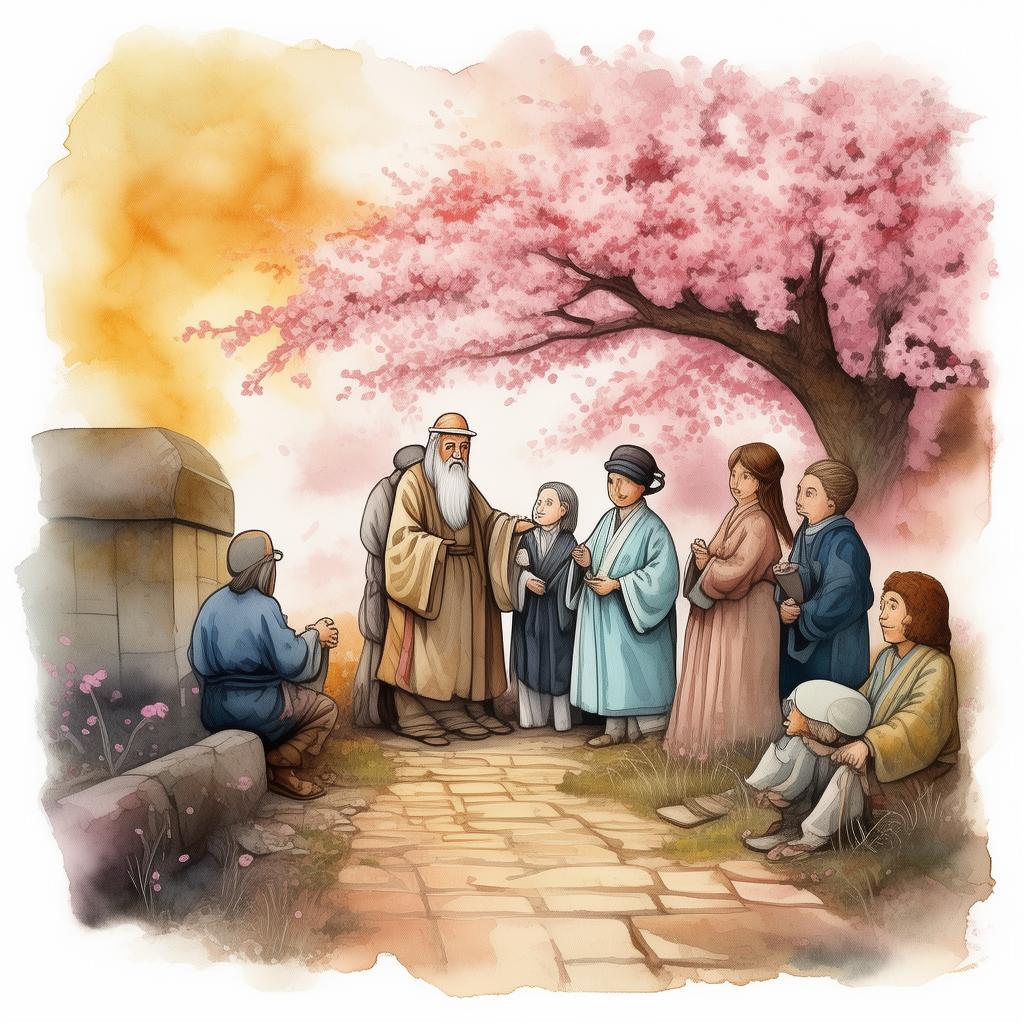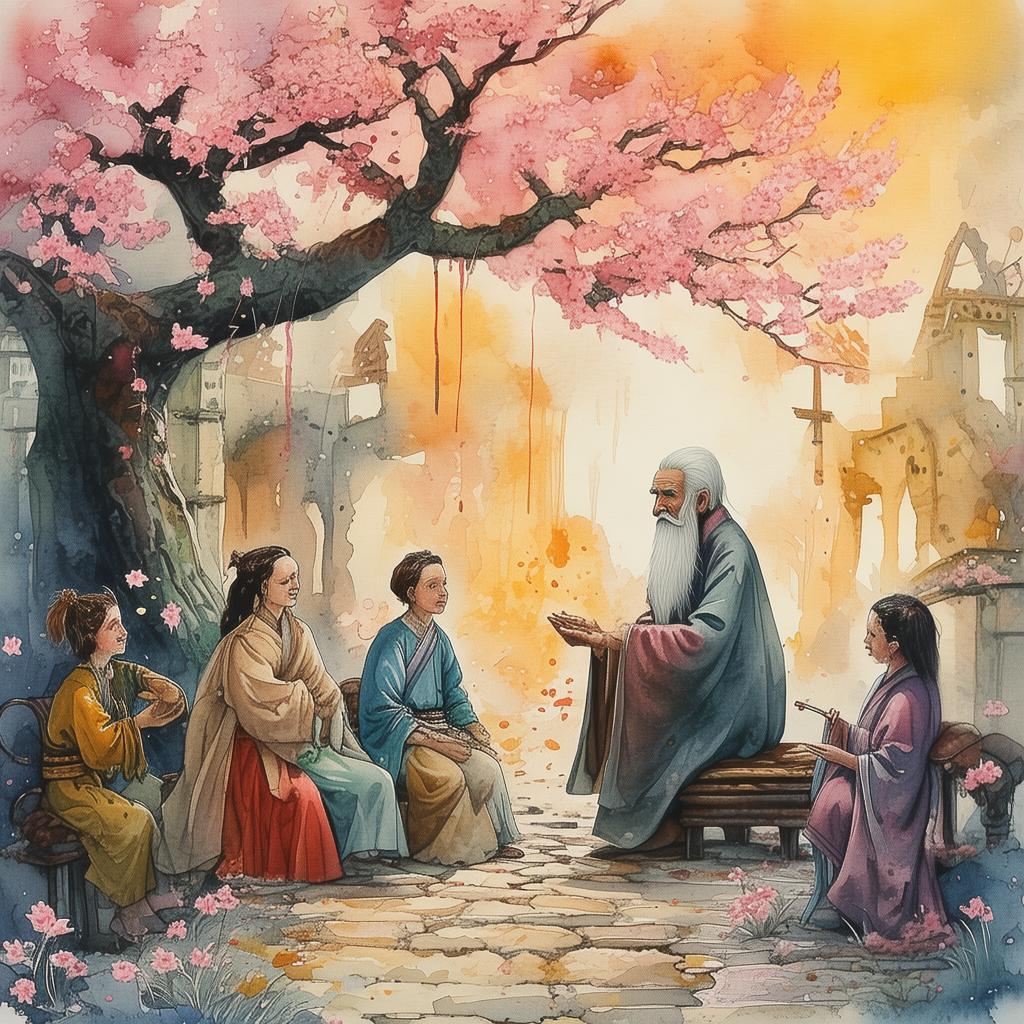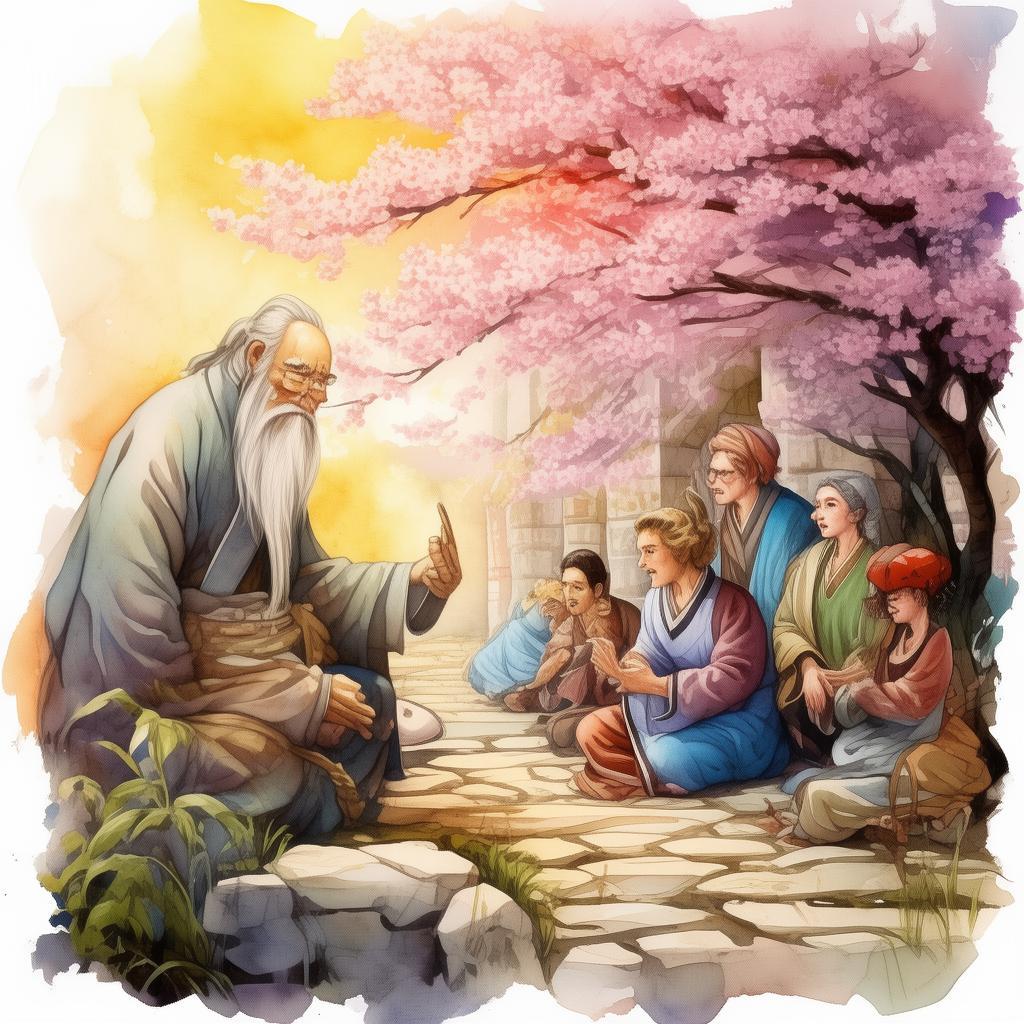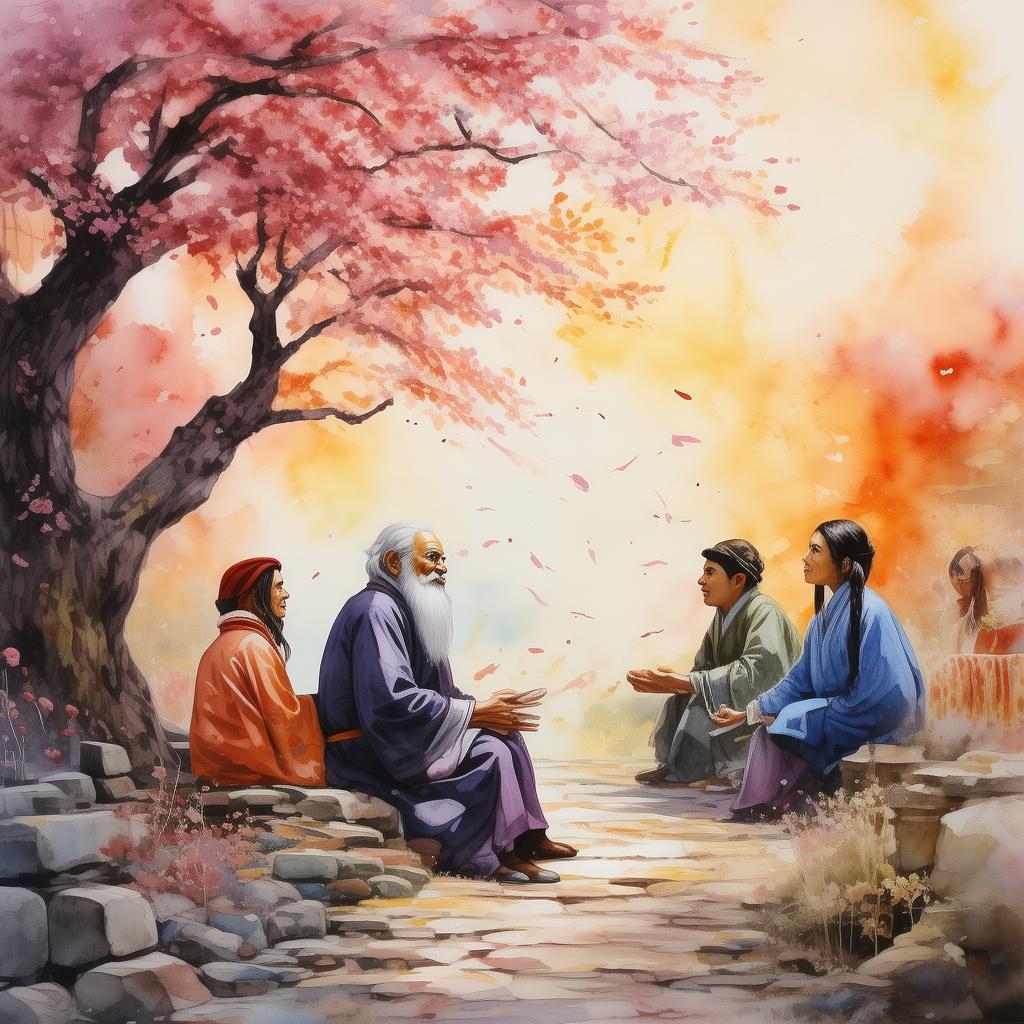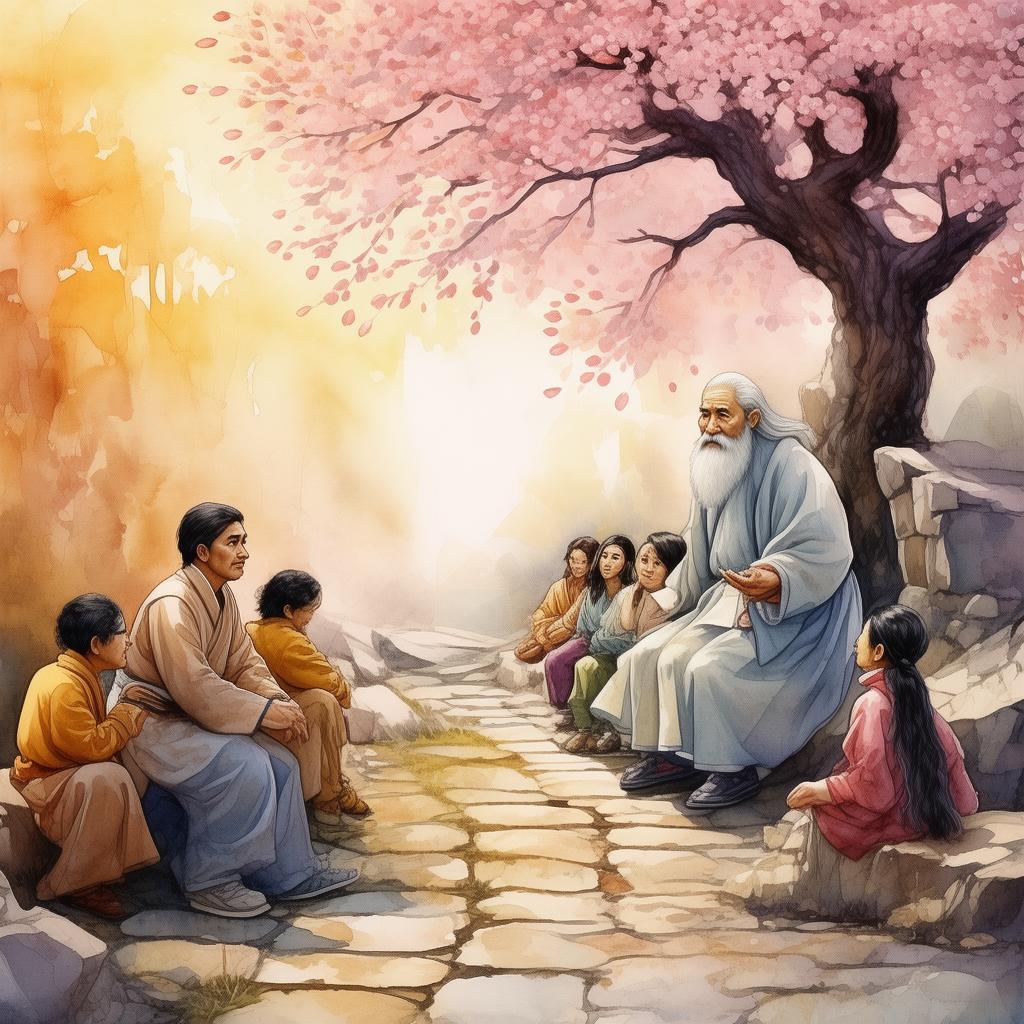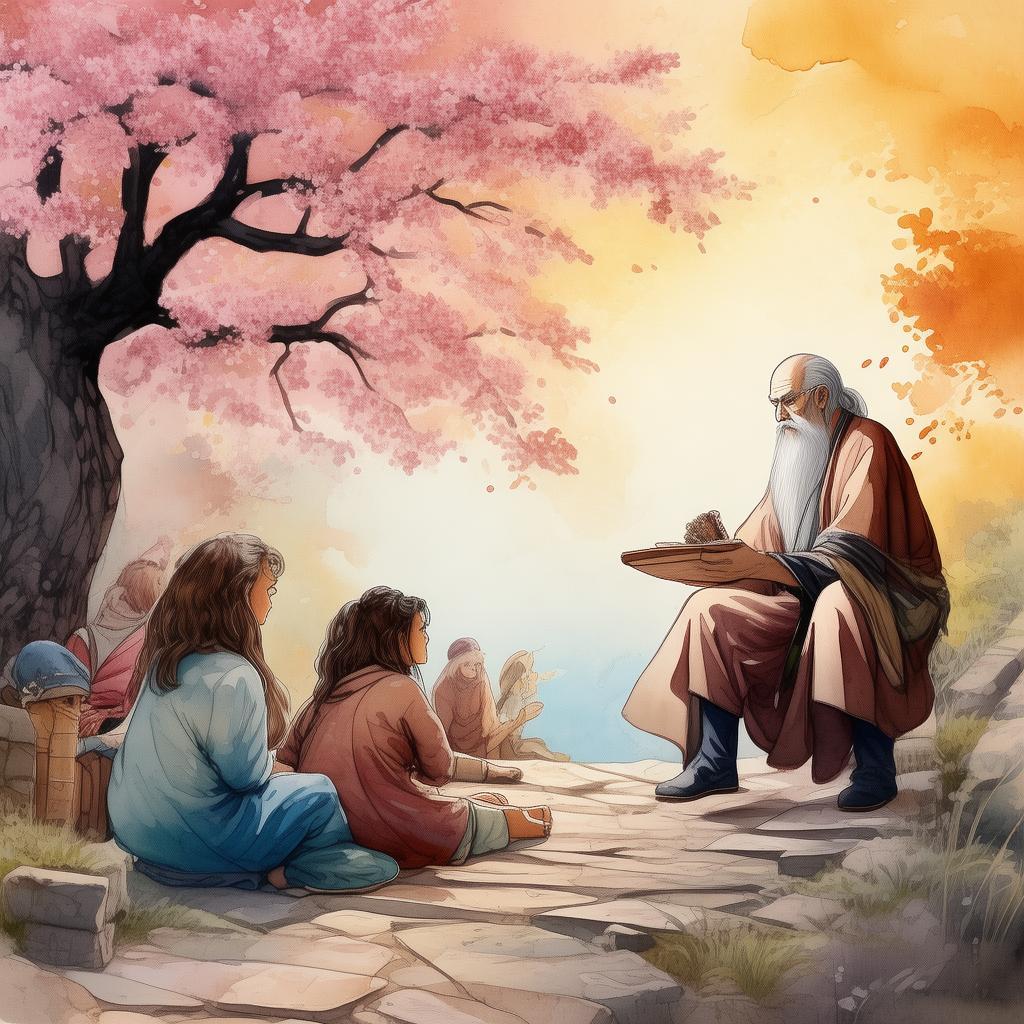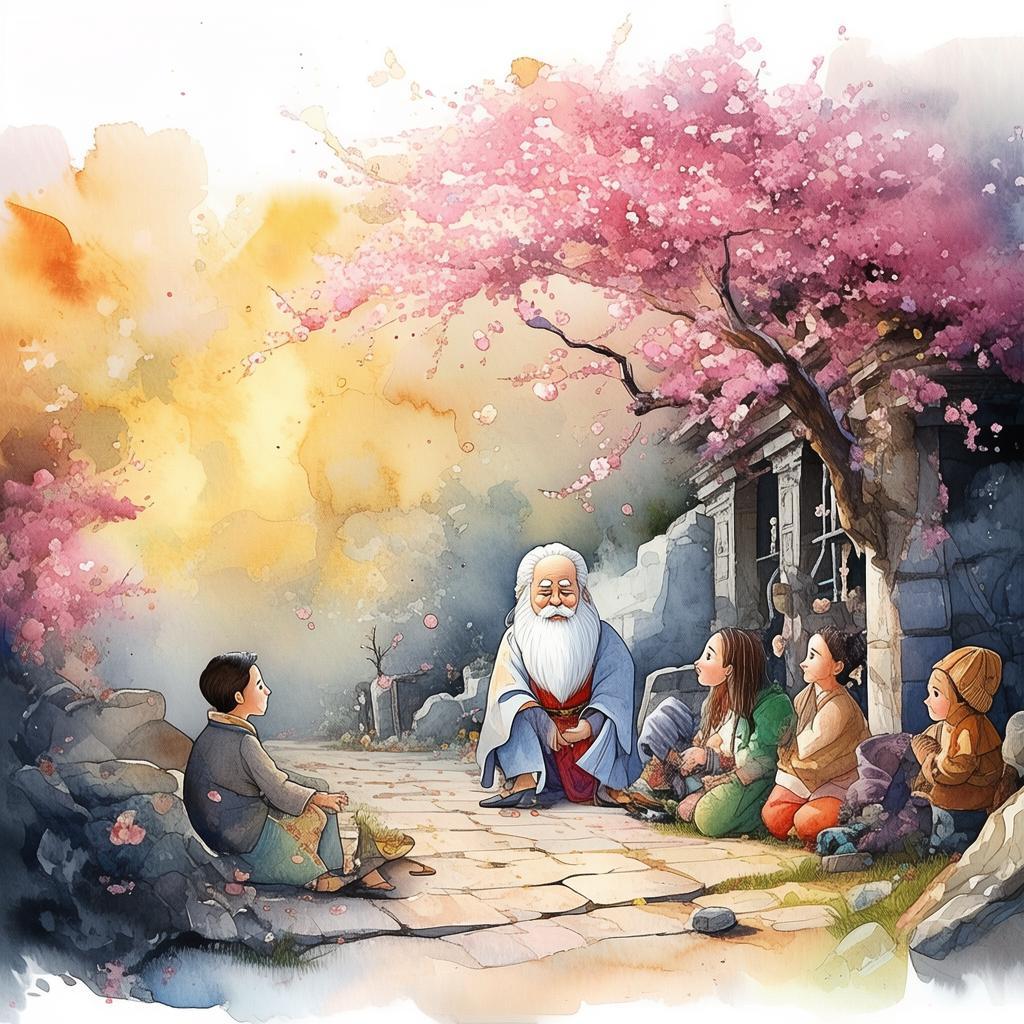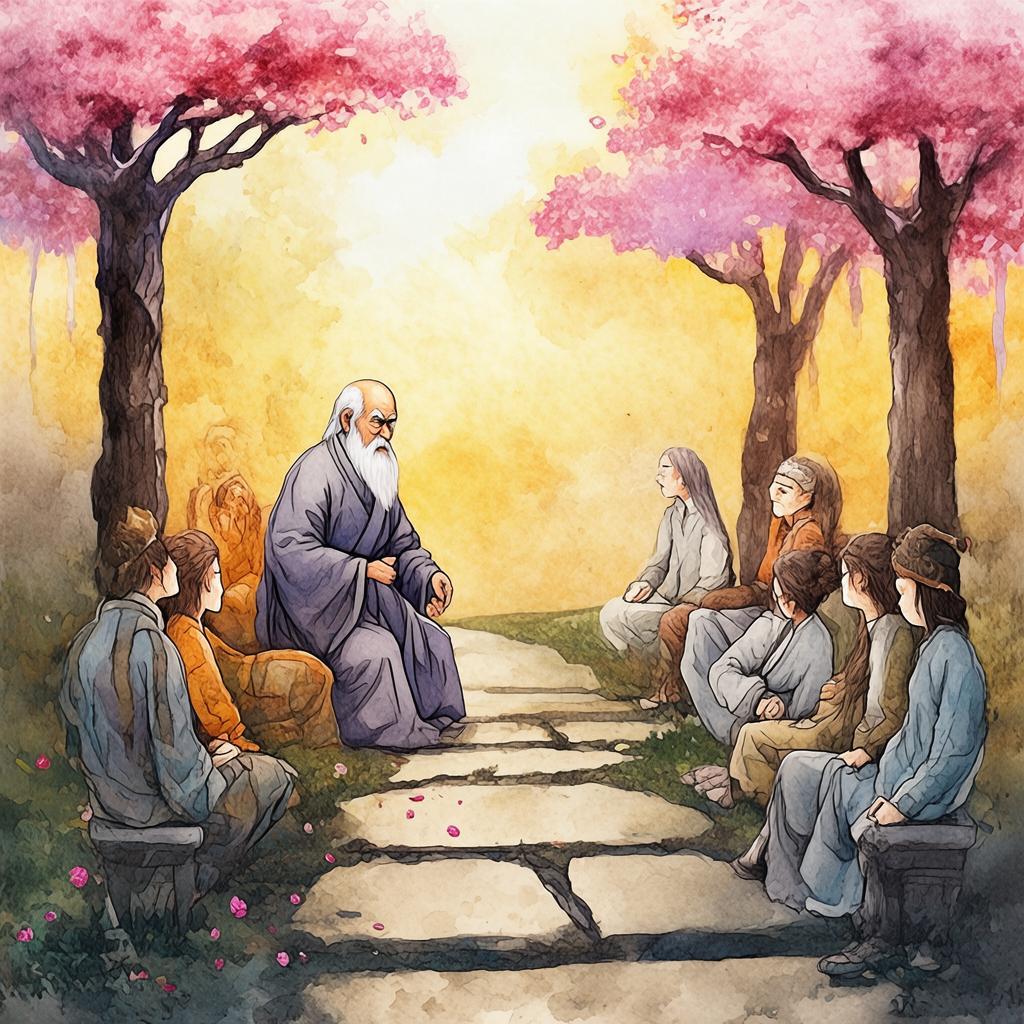The Illusion of Fortune
In the bustling city of Lingzhou, there lived a man named Li Ming, a master of illusions and a con artist of the highest order. His skills were so refined that he could convince the most discerning eyes that the moon was but a silver coin in his palm. His latest trick was a bet that had spread like wildfire across the city: he claimed to have the power to turn a humble ant into a majestic dragon with a single incantation.
Word of Li Ming’s feat reached the ears of a young scholar named Cheng, who was known for his sharp mind and unwavering integrity. Intrigued by the tale, Cheng decided to visit Li Ming’s den of deception. He arrived at the appointed hour and found Li Ming surrounded by a crowd of onlookers, all eager to see the spectacle.
“Ah, Scholar Cheng,” Li Ming said with a sly grin, “I have been expecting you. Come, come, let us see if your wisdom can outwit my magic.”
Cheng, not one to back down from a challenge, stepped forward. “I am not here to outwit you, Li Ming. I simply wish to understand the nature of your trickery.”
Li Ming nodded, his eyes gleaming with mischief. “Very well, Scholar Cheng. Gather around and watch closely. I shall turn this ant into a dragon.”
With a flourish, Li Ming began his incantation, the words rolling off his tongue like a melody. The crowd watched in awe as the ant began to glow, its form shifting and distorting until, finally, a magnificent dragon emerged, its scales shimmering and its eyes gleaming with power.
The crowd erupted in cheers, and Cheng, though skeptical, could not deny the spectacle before him. Li Ming, basking in the glory, turned to Cheng and said, “Now, Scholar Cheng, do you see? Fortune is a fickle thing, and with the right trickery, one can manipulate it at will.”
Cheng, however, had not been fooled. He knew that the dragon was not a creature of magic but rather a clever illusion. He approached Li Ming and whispered, “Li Ming, your trickery is masterful, but remember this: fortune is not to be taken for granted. It is a gift that can be squandered with pride and greed.”
Li Ming, taken aback by Cheng’s insight, fell silent. He had always believed that he controlled fortune, but Cheng’s words made him question his own beliefs. The crowd, noticing the sudden silence, turned to look at the two men.
“I am grateful for your wisdom, Scholar Cheng,” Li Ming finally said. “I have been blind to the true nature of fortune. Perhaps, with your guidance, I can learn to see the world as it truly is.”
Cheng nodded, knowing that the seed of wisdom had been planted in Li Ming’s heart. “The true power of fortune lies not in manipulation but in understanding. Use your skills to enlighten others, not to deceive them.”
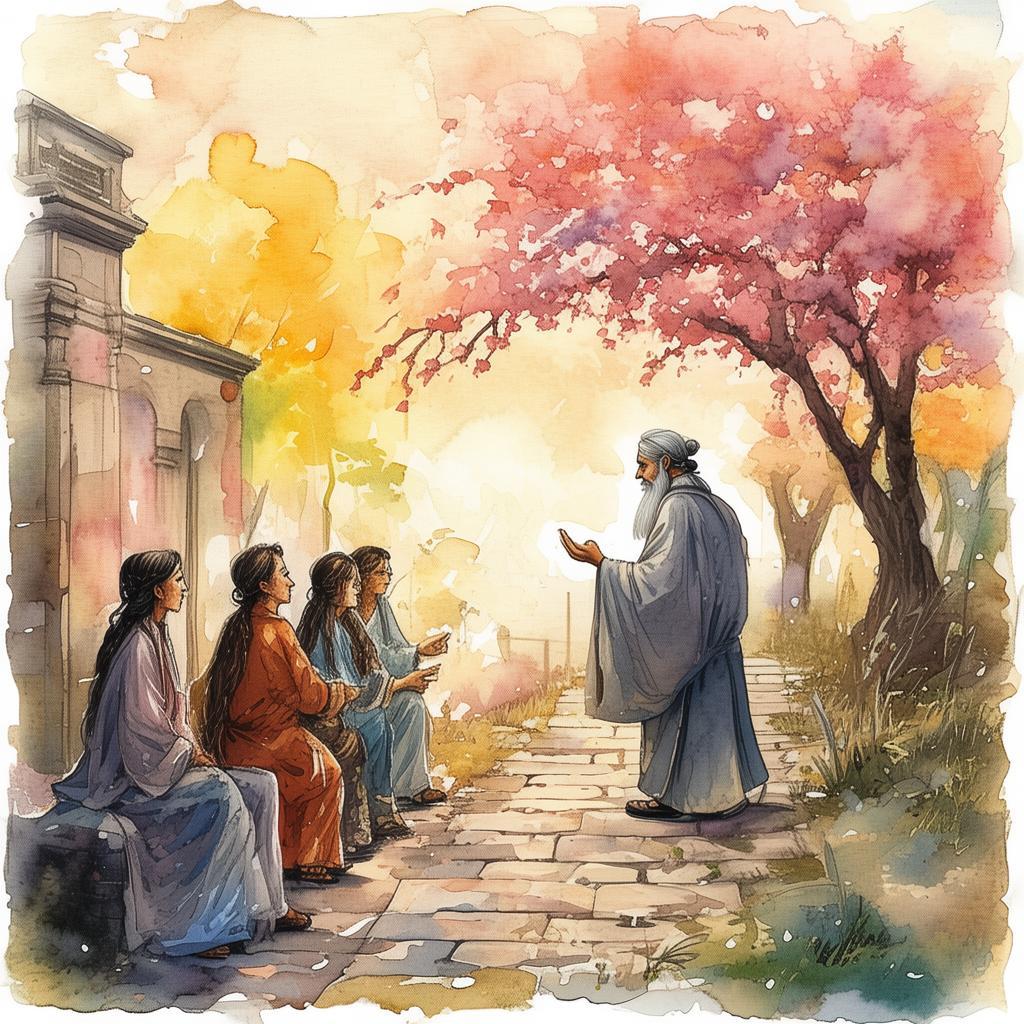
And so, Li Ming began to change his ways, using his talents to help rather than to harm. He taught others the art of deception, but with the caveat that it should be used for good, not for gain. His transformation became a legend in Lingzhou, and his once-fleeting fortune turned into a lasting legacy of wisdom and integrity.
As Cheng walked away from Li Ming’s den, he reflected on the encounter. He had seen through the illusion of fortune and had helped another to see beyond the veil of self-deception. In that moment, he realized that true fortune was not a fleeting illusion but a gift to be cherished and used wisely.
The Illusion of Fortune had not only changed the course of Li Ming’s life but also left an indelible mark on the city of Lingzhou, a testament to the power of wisdom and the folly of self-deception.
✨ Original Statement ✨
All articles published on this website (including but not limited to text, images, videos, and other content) are original or authorized for reposting and are protected by relevant laws. Without the explicit written permission of this website, no individual or organization may copy, modify, repost, or use the content for commercial purposes.
If you need to quote or cooperate, please contact this site for authorization. We reserve the right to pursue legal responsibility for any unauthorized use.
Hereby declared.

